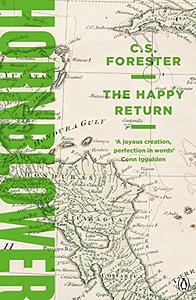You need to sign in or sign up before continuing.
Take a photo of a barcode or cover
adventurous
hopeful
informative
inspiring
reflective
fast-paced
Plot or Character Driven:
A mix
Strong character development:
No
Loveable characters:
Yes
Diverse cast of characters:
Yes
Flaws of characters a main focus:
No
adventurous
informative
tense
medium-paced
Plot or Character Driven:
Plot
Strong character development:
Yes
Loveable characters:
Complicated
Diverse cast of characters:
No
Flaws of characters a main focus:
Complicated
adventurous
lighthearted
slow-paced
Plot or Character Driven:
Plot
Strong character development:
No
Loveable characters:
No
Diverse cast of characters:
No
Flaws of characters a main focus:
No
adventurous
medium-paced
Plot or Character Driven:
Plot
Strong character development:
Yes
Loveable characters:
Complicated
Diverse cast of characters:
No
Flaws of characters a main focus:
Yes
These are not the Boys' Own tales of dashing derring do that I expected. Such is the name of Horatio Hornblower for readers. I was surprised to find there is real grit in these stories.
The suffering, tortures and privations are laid bare. Death is gruesome, frequent and at times everyday. He looks at the dead on the deck not as people but as remnants of puzzles.
Then later the good captain entertains fantasies of rape and murder.
The book has a lot more going on than I expected. It's all the better for it.
The battles are a bit too precisely nautical. One pivotal encounter in particular is relayed across 3 chapters.
The suffering, tortures and privations are laid bare. Death is gruesome, frequent and at times everyday. He looks at the dead on the deck not as people but as remnants of puzzles.
Then later the good captain entertains fantasies of rape and murder.
The book has a lot more going on than I expected. It's all the better for it.
The battles are a bit too precisely nautical. One pivotal encounter in particular is relayed across 3 chapters.
I enjoyed this book, with its multiple battles and glimpses into Hornblower in love.
Didn't appreciate the depiction of El Supremo or the Latin American natives, and that is why I left off one star.
But was a good and fast read as usual
Didn't appreciate the depiction of El Supremo or the Latin American natives, and that is why I left off one star.
But was a good and fast read as usual
adventurous
inspiring
mysterious
fast-paced
Plot or Character Driven:
A mix
Strong character development:
Yes
Loveable characters:
Yes
Diverse cast of characters:
No
Flaws of characters a main focus:
Yes
Finally got around to reading some Hornblower! It was a very quick read, and certainly worth the time.
The novel is set almost entirely onboard the Lydia, Hornblower's ship. We don't get a lot of world-building outside of some context of the Napoleonic Wars and a little bit of a taste of South American shoreside. This is thematic: it's a book about Hornblower and his command. The wars are only there to act as the source of his orders. Given the narrow focus, I could've done with a little bit more description of shipboard life, actually. We spend a lot of time on the Lydia, but we don't really come to love her as much as Hornblower does.
The plot is: Hornblower gets a series of contradictory and more or less impossible orders which he must cary out or face professional, social and—quite possibly—financial ruin. (I get the feeling that this will turn into a theme of the Hornblower books.) On this particular occasion, he's asked to forment revolution in Spanish South America, capture or destroy a ship much larger than his own and, while he's at it, find a seagoing route through Central America (none, of course, exists). He also takes on a female passenger just before a quite-dangerous phase of his mission. As you might expect, this gets even more complicated as the story goes on. A solid plot, although it begins to tail off awkwardly towards the end.
What's interesting though, is that Hornblower seems to struggle more with his own perceptions of his inadiquacies than he does with actually carying out his orders. A good decision on Forester's part: Hornblower, of course, turns out to be a nigh-invulnerable tactical genius, and it would get boring quite quickly to watch him continually kick ass.
On that note: Forester does quite a good job generating suspense against the handicap that Hornblower can't die because he has to be around for the sequels. He can, however, be captured, get divorced, face court-marshal, have his ship sunk, face mutiny, or be entirely ruined (although the existence of a book called [b:Lord Hornblower|77041|Lord Hornblower|C.S. Forester|http://photo.goodreads.com/books/1170899867s/77041.jpg|1088608] does seem to somewhat spoil that possibility). Other main-ish characters can die, and do with some frequency, but we don't really spend enought time with them for that to work as a threat.
Hornblower is a very interesting character, mostly because of the contrast between his estimation of his own abilities and his actual acomplishments. He's a great "devotion to duty" type of character because he actually seems human. We spend a lot of time in his head and get to see that, instead of an automaton who thinks only of acomplishing glory for King and Country, he spends most of his time worrying about his finances, his social standing, what his men think of him, whether he will be able to continue supporting his wife and then advancement of his career. When he's actually in action, however, his ego disappears from the picture. For example: when contemplating a risky manoevre, he reflects that if he gets killed, his ship won't make it back to England, so that's to be avoided. It doesn't seem to occur to him that if he's killed, he'll be dead. It's interesting to explore devotion to duty with a character who doesn't really seem to feel like he has to fufil his duties, he just does it. I could've done with a little more character development, though. Hornblower is more or less the same character at the end of the book, except with regards to the Lady Barbra subplot (which I won't spoil).
The other characters are a bit carboard cutout-ish, though. The mad Irishman is mad, Bush is efficient and hero-worshipping towards Hornblower, Lady Barbra is headstrong but surprisingly competent, etc. I realize that it's supposed to be a character study of Hornblower, but I think there's a trick missed here. If we spent a bit more time with the supporting cast, it would help to increase the suspence. We'd care more if they died.
The writing style is spare and effective (Hemmingway was aparently a fan). Forester is very good when describing action scenes, and when we're in Hornblower's head. There are a couple of rather irritating bits though. The point of view character sometimes changes rather jarringly at times, and towards the end he has a tendency to narrate from the present ("In those days there was not yet...") which takes me out of the story, somewhat.
A very well-crafted adventure. I've already got my hands on the next in the series.
The novel is set almost entirely onboard the Lydia, Hornblower's ship. We don't get a lot of world-building outside of some context of the Napoleonic Wars and a little bit of a taste of South American shoreside. This is thematic: it's a book about Hornblower and his command. The wars are only there to act as the source of his orders. Given the narrow focus, I could've done with a little bit more description of shipboard life, actually. We spend a lot of time on the Lydia, but we don't really come to love her as much as Hornblower does.
The plot is: Hornblower gets a series of contradictory and more or less impossible orders which he must cary out or face professional, social and—quite possibly—financial ruin. (I get the feeling that this will turn into a theme of the Hornblower books.) On this particular occasion, he's asked to forment revolution in Spanish South America, capture or destroy a ship much larger than his own and, while he's at it, find a seagoing route through Central America (none, of course, exists). He also takes on a female passenger just before a quite-dangerous phase of his mission. As you might expect, this gets even more complicated as the story goes on. A solid plot, although it begins to tail off awkwardly towards the end.
What's interesting though, is that Hornblower seems to struggle more with his own perceptions of his inadiquacies than he does with actually carying out his orders. A good decision on Forester's part: Hornblower, of course, turns out to be a nigh-invulnerable tactical genius, and it would get boring quite quickly to watch him continually kick ass.
On that note: Forester does quite a good job generating suspense against the handicap that Hornblower can't die because he has to be around for the sequels. He can, however, be captured, get divorced, face court-marshal, have his ship sunk, face mutiny, or be entirely ruined (although the existence of a book called [b:Lord Hornblower|77041|Lord Hornblower|C.S. Forester|http://photo.goodreads.com/books/1170899867s/77041.jpg|1088608] does seem to somewhat spoil that possibility). Other main-ish characters can die, and do with some frequency, but we don't really spend enought time with them for that to work as a threat.
Hornblower is a very interesting character, mostly because of the contrast between his estimation of his own abilities and his actual acomplishments. He's a great "devotion to duty" type of character because he actually seems human. We spend a lot of time in his head and get to see that, instead of an automaton who thinks only of acomplishing glory for King and Country, he spends most of his time worrying about his finances, his social standing, what his men think of him, whether he will be able to continue supporting his wife and then advancement of his career. When he's actually in action, however, his ego disappears from the picture. For example: when contemplating a risky manoevre, he reflects that if he gets killed, his ship won't make it back to England, so that's to be avoided. It doesn't seem to occur to him that if he's killed, he'll be dead. It's interesting to explore devotion to duty with a character who doesn't really seem to feel like he has to fufil his duties, he just does it. I could've done with a little more character development, though. Hornblower is more or less the same character at the end of the book, except with regards to the Lady Barbra subplot (which I won't spoil).
The other characters are a bit carboard cutout-ish, though. The mad Irishman is mad, Bush is efficient and hero-worshipping towards Hornblower, Lady Barbra is headstrong but surprisingly competent, etc. I realize that it's supposed to be a character study of Hornblower, but I think there's a trick missed here. If we spent a bit more time with the supporting cast, it would help to increase the suspence. We'd care more if they died.
The writing style is spare and effective (Hemmingway was aparently a fan). Forester is very good when describing action scenes, and when we're in Hornblower's head. There are a couple of rather irritating bits though. The point of view character sometimes changes rather jarringly at times, and towards the end he has a tendency to narrate from the present ("In those days there was not yet...") which takes me out of the story, somewhat.
A very well-crafted adventure. I've already got my hands on the next in the series.

